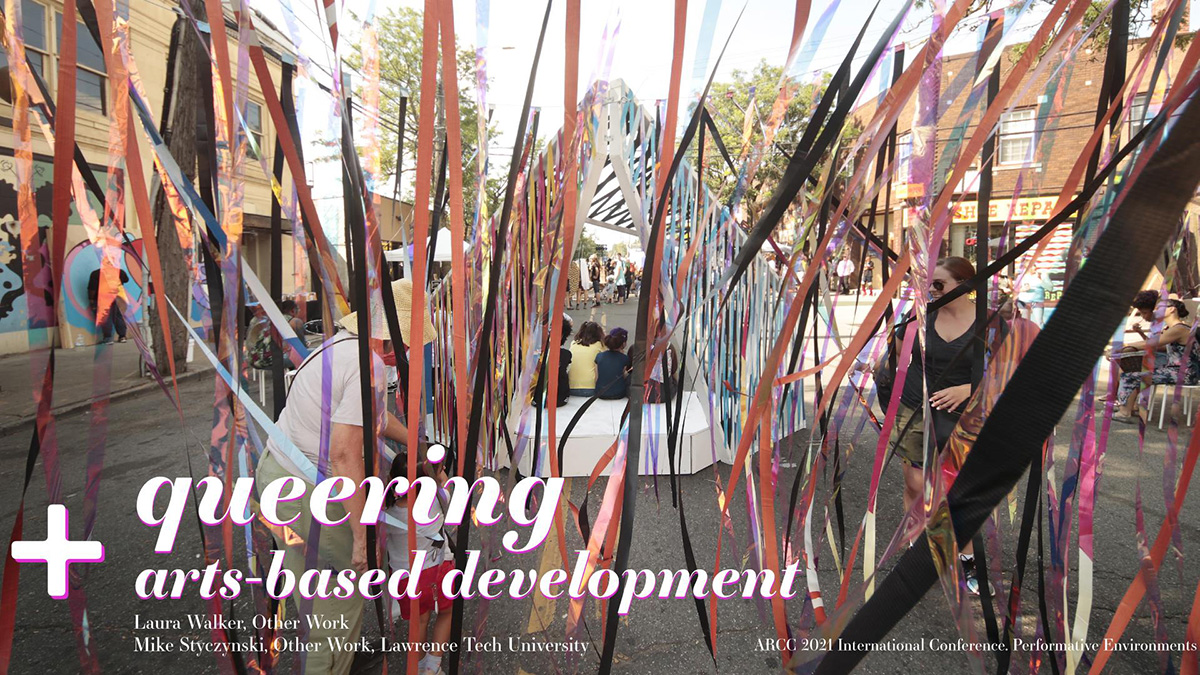

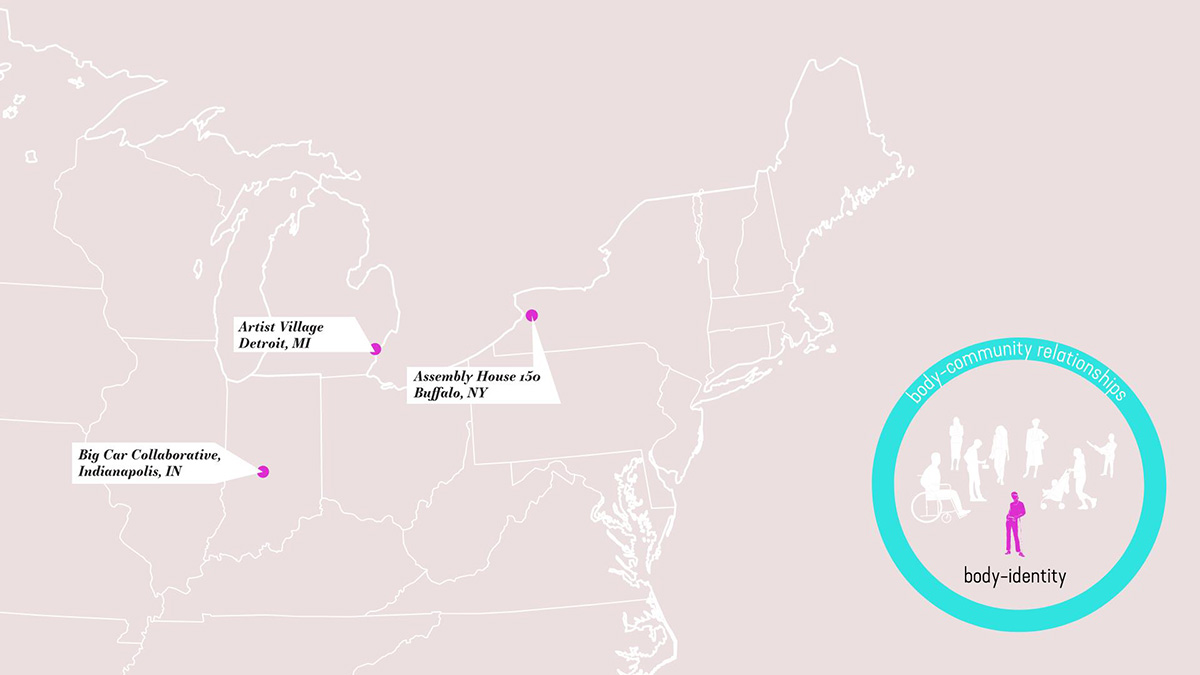



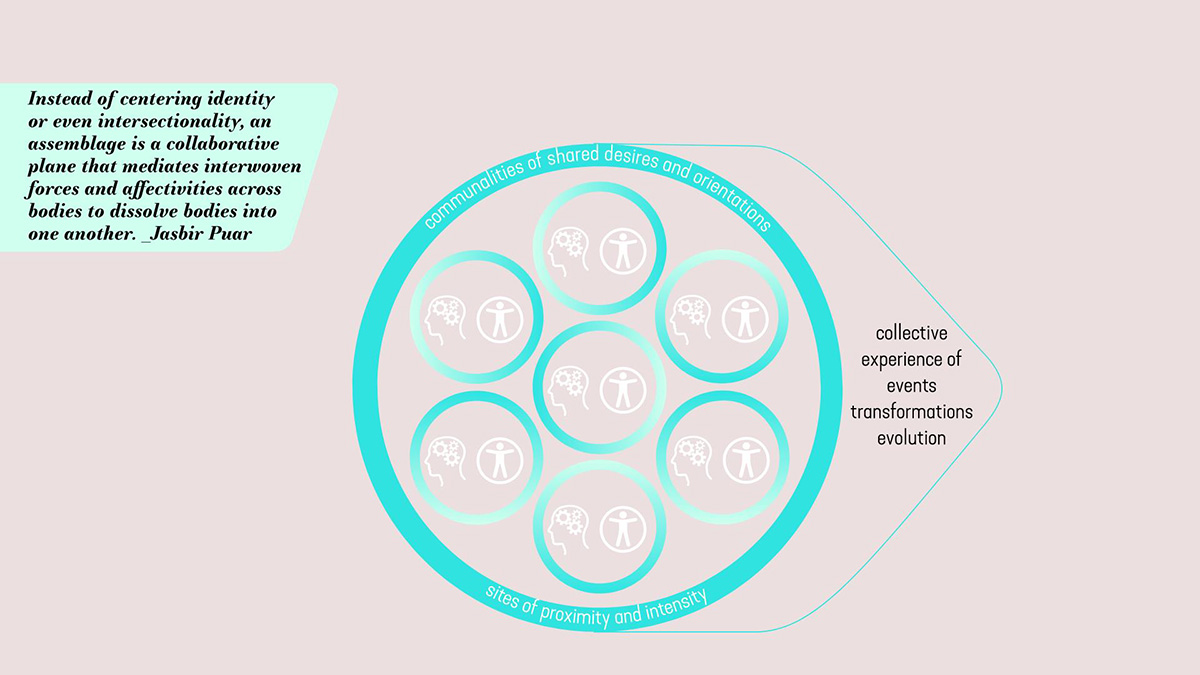


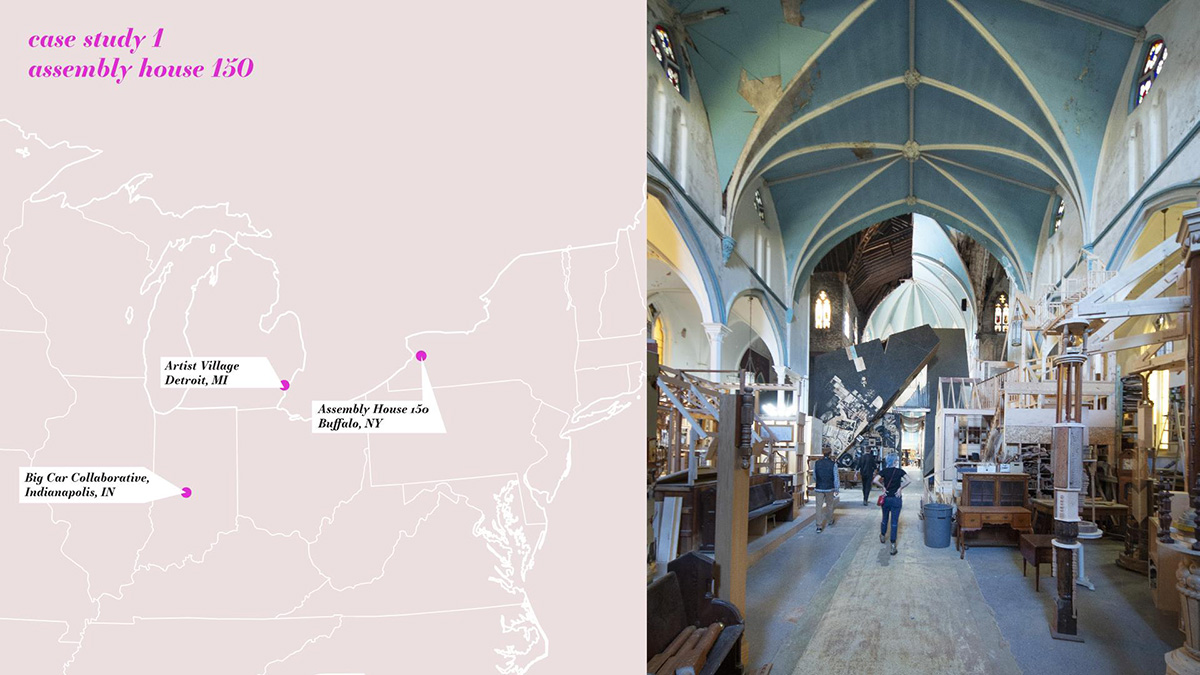
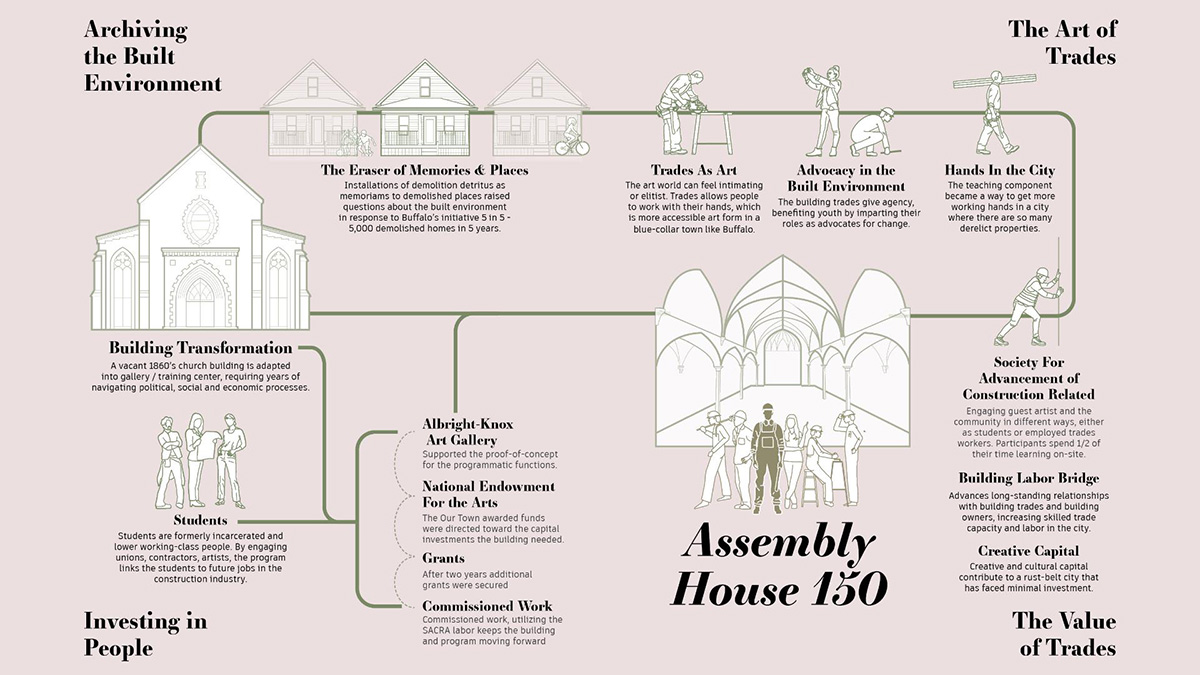


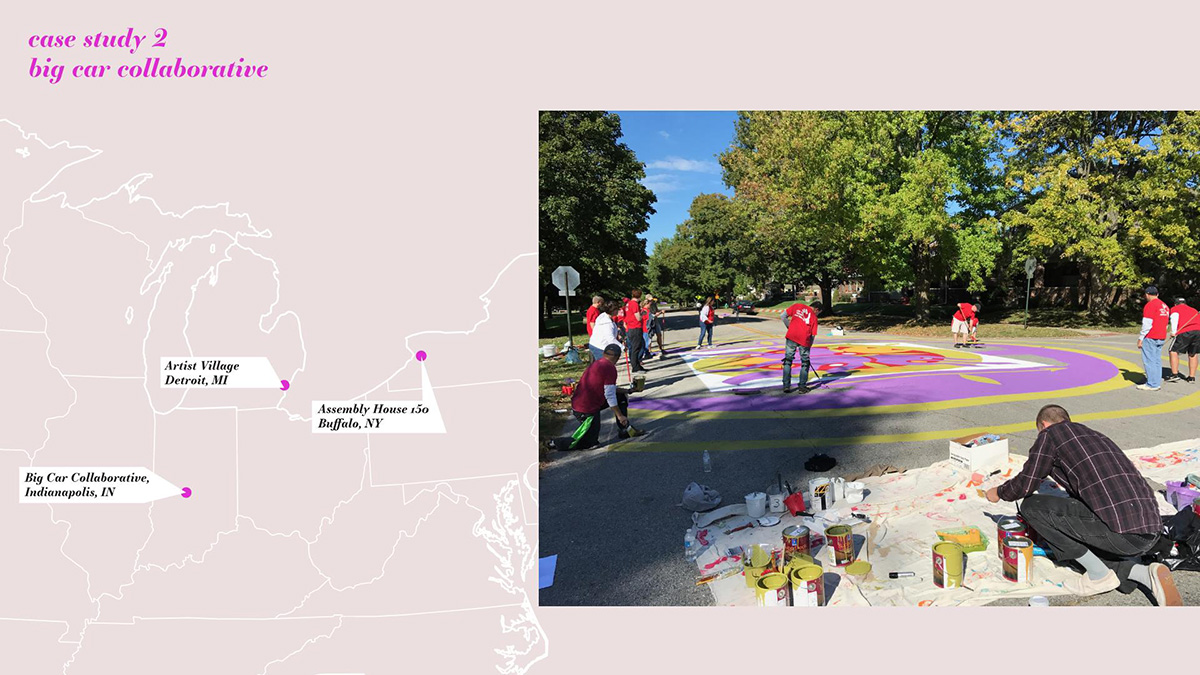









ARCC 2021 Performative Environments
Walker, Laura and Styczynski, Mike. “Queering Arts-based Development.” Proceedings of the 2021 ARCC Architectural Research Conference. Pages 483-490, University of Arizona: Tucson, AZ.
ABSTRACT: Emergent modes of arts-based development and occupation of public spaces in rustbelt cities are creating communities of creative capital, collective care, and social justice activism. Arts-based development and queer theory both contest social norms and explore the power struggles against heteronormative constructions of identity. “Queerscapes” deploy queer theory to reimagine human and non-human performances and interactions with space and one another. Queer theory and arts-based approaches to spatial occupation redistribute power and ownership to ultimately disrupt and transform social conventions.
Arts-based development is communalized through shared tactical and cooperative appropriation and stewardship of undervalued land by marginalized communities. As such, queer theory offers a conceptual framework to understand the nuance and complexity of alternative reclamation of sites defined by urban austerity. This paper highlights the creative strategies that arts-based communities use to reimagine normative conceptions of urbanism. We introduce a framework to understand queering and queerscapes in land-use development and examine the ways in which abandoned or privately owned sites have been queered for dwelling, learning, and performances by different communities aligned by shared values.
Creative collectives have cooperated to form interdependent, decentralized networks, allowing new types of architectural and urban forms to emerge as responsive environments. This study engaged specific organizations over a two-year period, and it evaluates how they employ queer theory to reframe normative spatial conditions and rituals. This research demonstrates how spatial aspects of queerscapes are a mechanism for the agency and liberation for oppressed identities. The intention is to serve as a guide for empowering marginalized communities through social and creative infrastructure.
